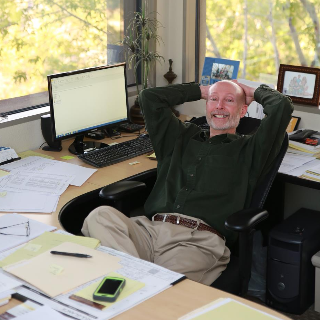Your Hometown Writing Toolbox
In my previous blog post, I spoke about the importance of embracing your hometown from a marketing perspective, how it can help you create a distinctive brand and enable you to rise above the pack. In my case, I’ve hitched my wagon to Las Vegas, my adopted home for nearly 40 years, in an effort to make visitors feel like locals and locals nod their heads in recognition.
Today I’d like to discuss the writing tools you’ll need to make this happen no matter where you call home:
A Journalist’s Eye
As a young man, I somehow knew that journalism would serve me well. And so, throughout high school and college, I devoured every course I could get my hands on, from 101 to magazine writing to investigative reporting. Of everything I learned, the power of observation has become my most indispensable skill.
Whenever I’m stuck for an idea or just need a shot of inspiration, all I have to do is plop myself down in a public place — McCarran International Airport, an out-of-the-way coffee shop (seedier the better), any hotel/casino — blend into the background, and pay attention. I always keep a reporter’s notebook with me to jot down a snippet of dialogue or random happening. Otherwise, I think I’ll remember it later, but I won’t.
Out here, casinos are the lowest of hanging fruit, and I go beyond them to write about regular people and neighborhoods and establishments (yes, we have those), but I have to at least give them a nod while searching out unique details like those in this scene from my latest novel, “The House Always Wins”:
We wove our way through a pack of freshly sunburned conventioneers still wearing their “Hi, My Name Is” stickers, past drunks slurring rude comments to drunker drunks stabbing at the wrong buttons on ATMs, and stopping briefly to gawk at a gaggle of Asian tourists whooping it up in front of a long row of ‘You Might be a Redneck’ slot machines.
A Comedian’s Sensibility
George Carlin, who would surely occupy a prime spot on my Mount Rushmore of comedy gods, had a gift for seeing the most mundane things through fresh eyes, leaving audiences to wonder, “Why didn’t I think of that?”
Here’s one of what could be 10,000 examples: “I recently went to a new doctor and noticed he was located in something called the Professional Building. I felt better right away.” How many times have we walked past a similar building and not given it a second thought?
I strive to think like Carlin, although I’m not as good at it. Still, in my first novel, “Dice Angel,” protagonist Jimmy D observes, “I was dismayed to find a space right near the elevators. In my old gambling days, that was always the kiss of death. It was like using up all my luck before ever entering the casino.”
Developing the habit of seeing your everyday world through a skewed prism is like exercising; the more you practice, the better you’ll get.
A Musician’s Ear
Even some of the most successful writers have trouble with dialogue. In real life, people don’t speak in complete sentences. There’s a rhythm and musicality to speech patterns, and it can vary greatly from region to region, shading your novel with even more hometown authenticity. Capturing its essence, without needing subtitles, is the mark of an accomplished author. And no one, to my mind, did this better than Elmore Leonard:
“Lonnie? Mostly he deal grass. Get this low-grade weed and sell it to the people out the V.A. hospital, tell them it’s Tia-wanna-gold, some name he make up. The stuff, man grow it in Pontiac. They go ooh, aaah, get us some more this stuff. Lonnie shake his head, he say he don’t know but he try.”
A Philosopher’s Depth
Themes, universal truths, can come from the top down. Or they can emerge from the bottom, organically, from the countless details you meticulously struggle to get right. I like this way better, rather than forcing a particular point of view on my readers. In thinking about my body of work, I recognize common threads that must fascinate me at a subconscious level: luck, karma, reinvention, second chances, fresh starts, ambiguity, irony, dark humor. Not coincidentally, what better vehicle to hang these on than Las Vegas?
Your city may not be as in-your-face as mine, but I’m sure it will give up its secrets if you follow the steps I’ve outlined above. Every place is fascinating in its own right. All you have to do is recognize it.









What People Are Saying